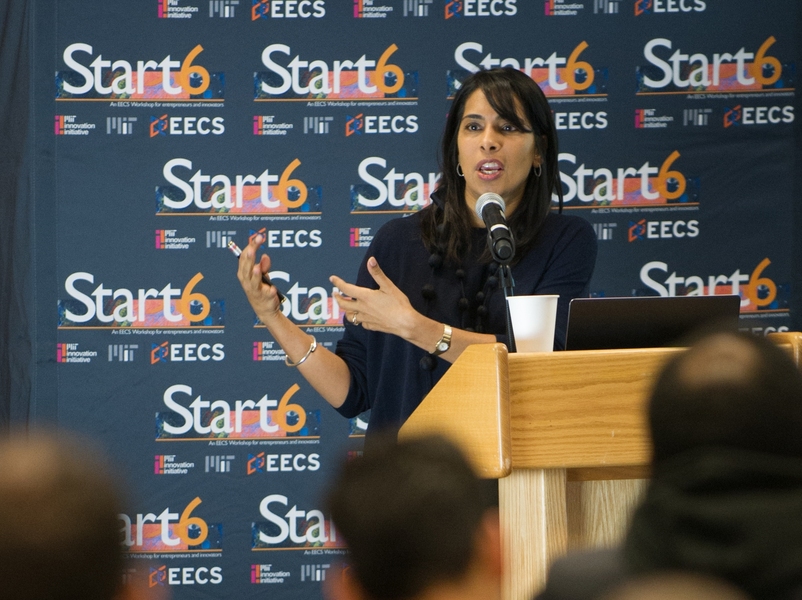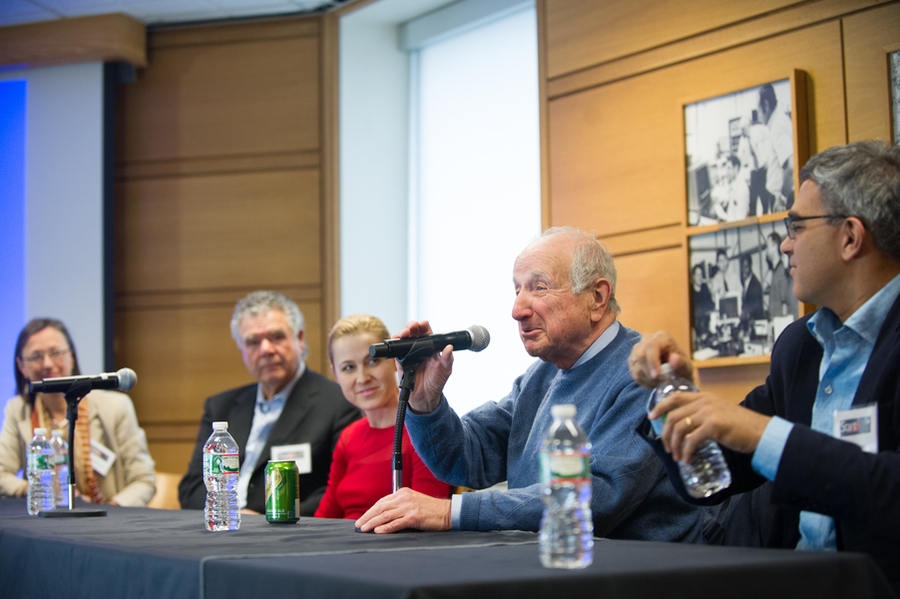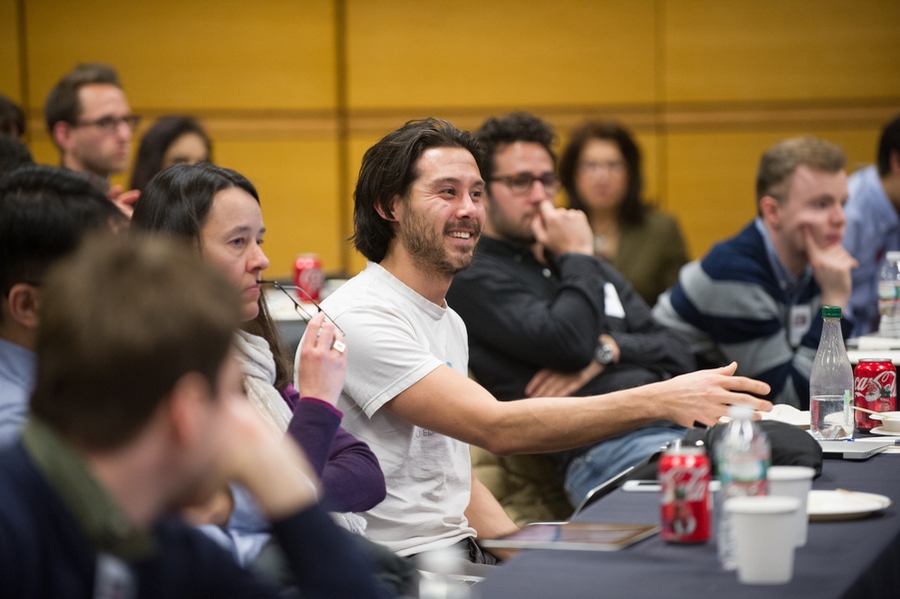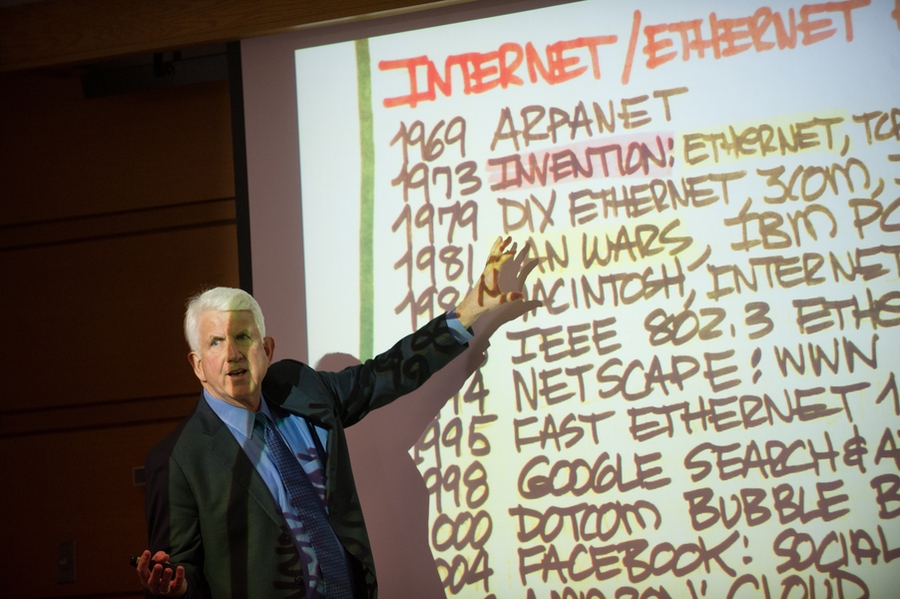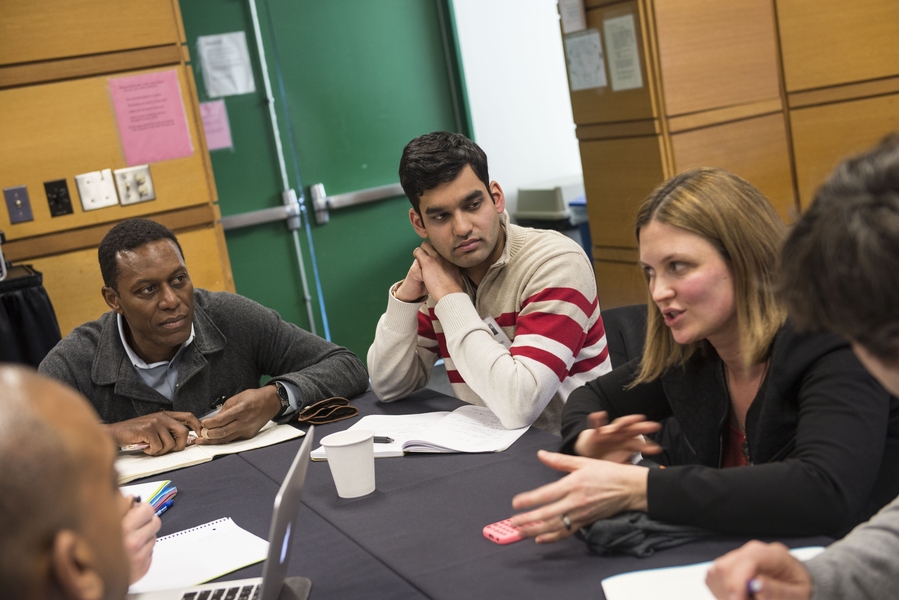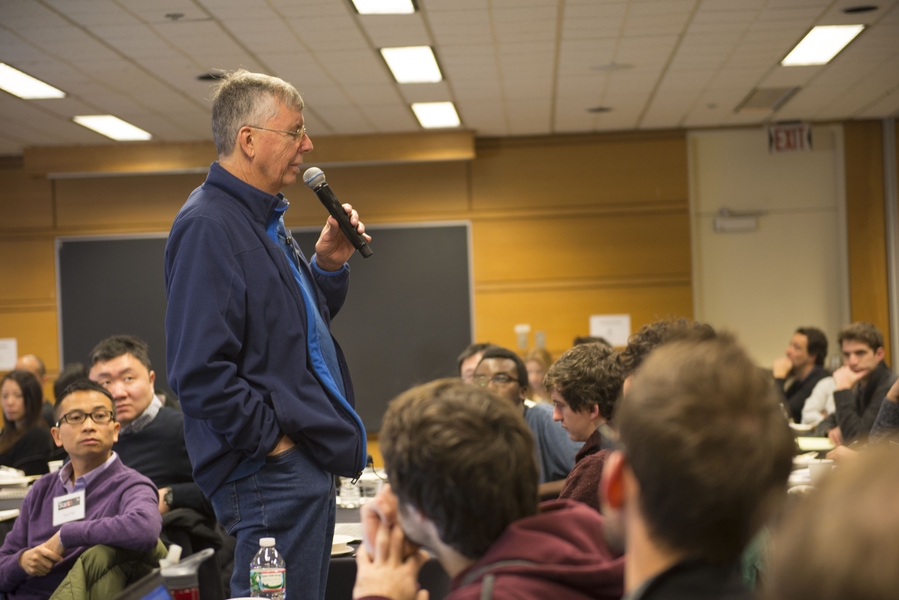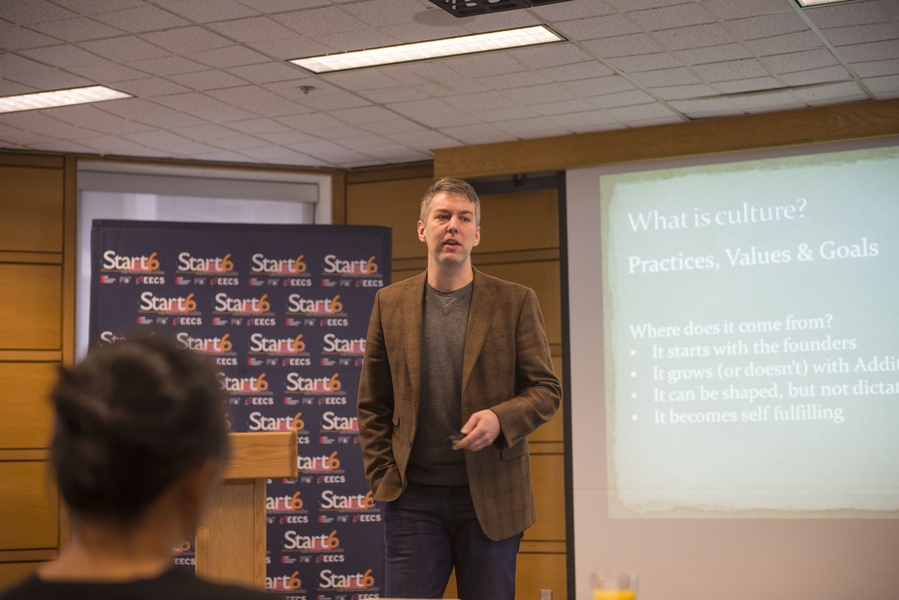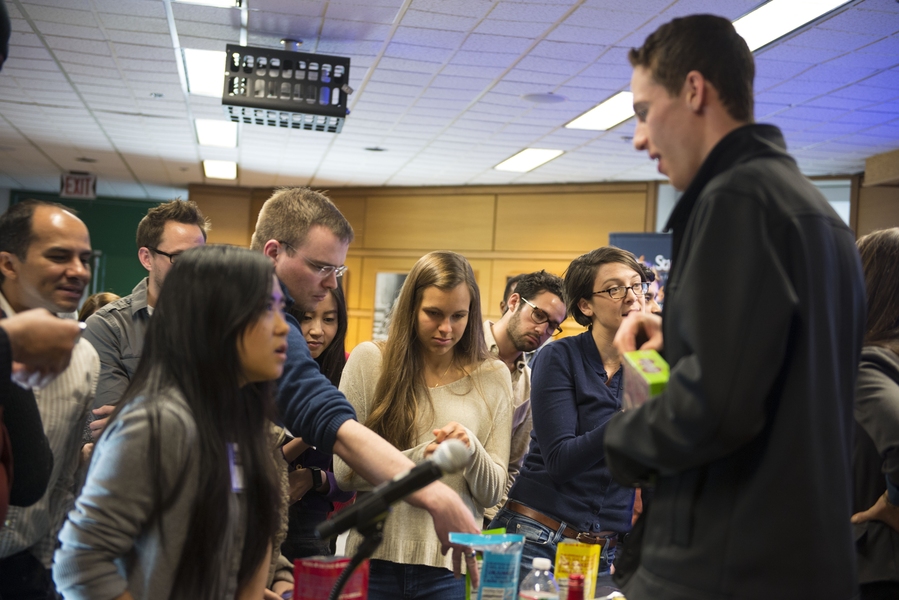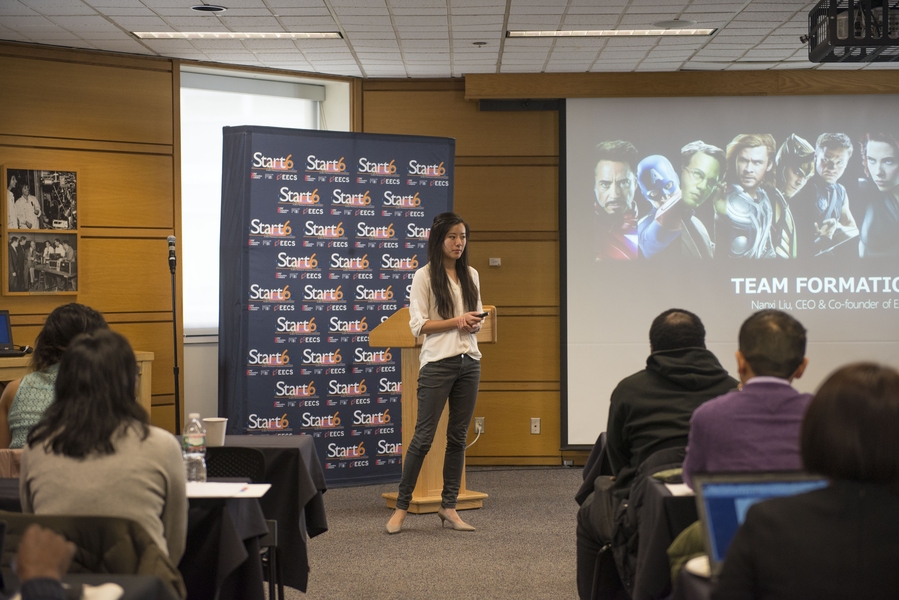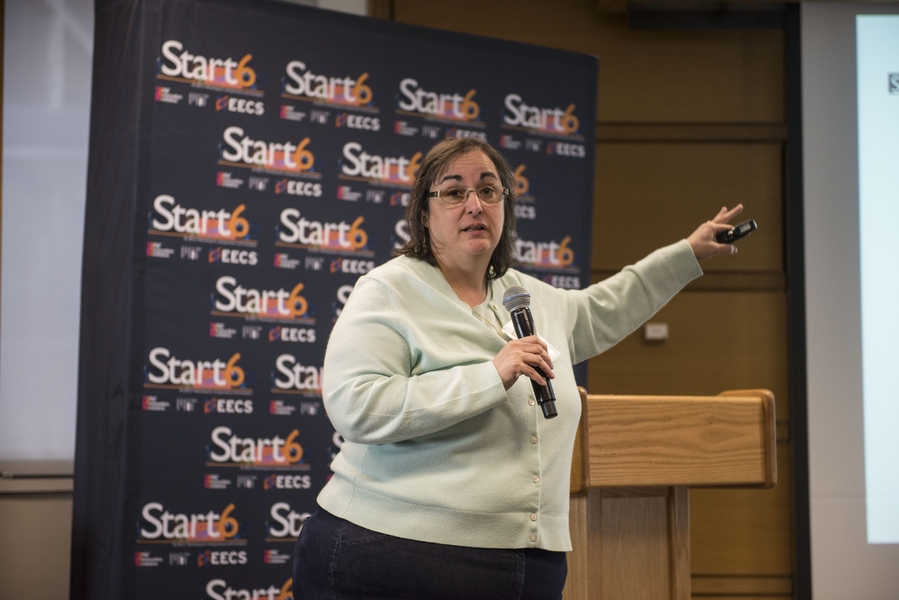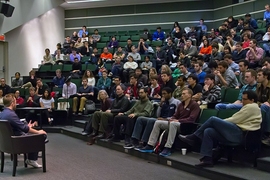MIT’s next generation of entrepreneurs is getting a leg up on the competition thanks to Start6, an innovative class offered Jan. 12-27 by the Department of Electrical Engineering and Computer Science (EECS) that teaches students what’s needed to launch and run a successful startup business.
Keynote speakers for the class include Dropbox founder Drew Houston ’05, Google vice president Jeremy Wertheimer SM '89, PhD '96, and Ethernet co-inventor Robert Metcalfe, the founder of 3Com. The class also features mentoring, field trips, and panel discussions on entrepreneurship paths, marketing techniques, and funding strategies.
“This course is about exposing students to what entrepreneurship is about and helping them make the best career choices,” said Anantha Chandrakasan, the Joseph F. and Nancy P. Keithley Professor of Electrical Engineering and EECS department head, who launched the program last year. “Students hear from an all-star cast of successful entrepreneurs, many of whom are MIT alums who really want to help our students. We’re creating a community of entrepreneurs here.”
Nearly 80 students from 15 MIT departments are taking the Independent Activities Period class, which provides tools, knowledge, and inspiration on a wide variety of entrepreneurial topics, including pitch-making, funding, and hiring and managing employees.
“This room has felt like it has the highest concentration of entrepreneurial activity anywhere around,” said EECS PhD student Phillip Nadeau, noting that in just the first week of meetings in Building 34’s Grier Rooms, students heard from Wertheimer, EMC cofounder Roger Marino, Bernie Gordon (the father of high-speed analog-to-digital conversion), venture capitalists, angel investors, and many others.
Advice from the experts ran the gamut, with many relating personal stories of both disappointment and success. For example, in the very first session on Jan. 12, MIT Professor Sangeeta Bhatia SM '93 PhD '97 outlined the path she took from basic research to the commercialization of micro-livers and finally the launch of a company called Hepregen. “You don’t know what’s going to be a product necessarily in the moment,” said Bhatia, who is the John J. and Dorothy Wilson Professor of Health Sciences and Technology and EECS at MIT. “Err on the side of protecting intellectual property.”
Marino briefly described how EMC managed to outlive its early competition. “I believe [our competitors] died of arrogance. You never want to be arrogant,” he said. His advice to those starting out? “You have to have corporate culture right from the get-go. It’s hard to correct that later. So be helpful, work hard, come early, leave late.”
Students learned from many speakers that the path to success is truly unpredictable. Metcalfe, for example, gave students a lesson in the history of innovation in the computer industry, which revealed that the best technology doesn’t always win. “Innovation is very complicated. That’s the reason that most [startups] fail,” he said.
Nadeau said Metcalfe’s talk really resonated with him. “It’s important to remind yourself that you don’t know what will happen 10 to 15 years from now,” he said.
Ultimately, the difference between success and failure is often a matter of persistence. Vanu Bose '88, SM '94, PhD '99, CEO of Vanu Inc, a provider of wireless infrastructure solutions, told the students, “If you ever decide to give up, it’s over.”
Freshman Lisette Tellez said she found it comforting to hear about the failures faced by even standout entrepreneurs. “It’s reassuring to know what they had to go through. These are people who were once in my shoes — many are MIT alums — and now they’re successful,” she said.
Nascent startups
In addition to attending lectures, all Start6 students were required to develop potential startups for the course. Whether or not they really expected to launch a company in the near future, the assignment enabled students to practice such skills as networking, market research, and delivering a business pitch — as well as to work with a mentor.
“I’m here to learn and to practice,” said Tellez, who was working on a “for fun” project: an app to help students connect to problem set buddies. “When the time comes, we’ll have some experience.”
Nadeau, by contrast, was exploring ways to commercialize a medical device he designed with others at MIT to aid people with inflammatory bowel disease. “We want to see what it would take. Is there a market, what’s the process for finding a market, etc.” he said.
Alex Guo, a fifth-year EECS PhD student, said she was still unsure about the future of her project: a third-party testing company for electronics that use next-generation materials. But, she said, “We have been revising our vision of the company every day, and it is becoming more real.”
Guo said she found Start6 inspirational — particularly because she had the opportunity to hear so many personal stories of entrepreneurial success and failure. “You learn something from each one. People go through their startup journeys very differently,” she said. “[This class] made me realize there is no one route to follow. At the end, it’s a hero’s journey: You have to make your own story.”
